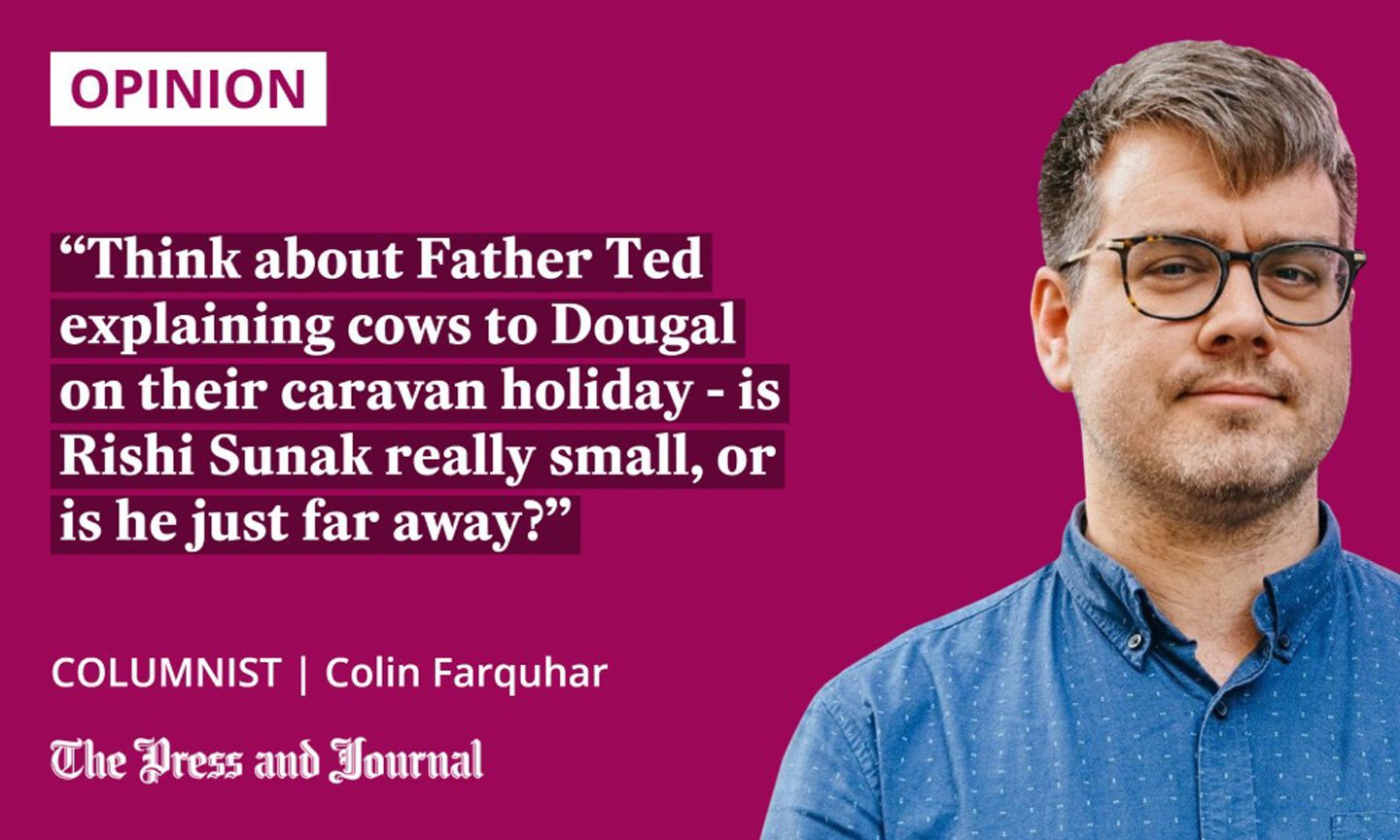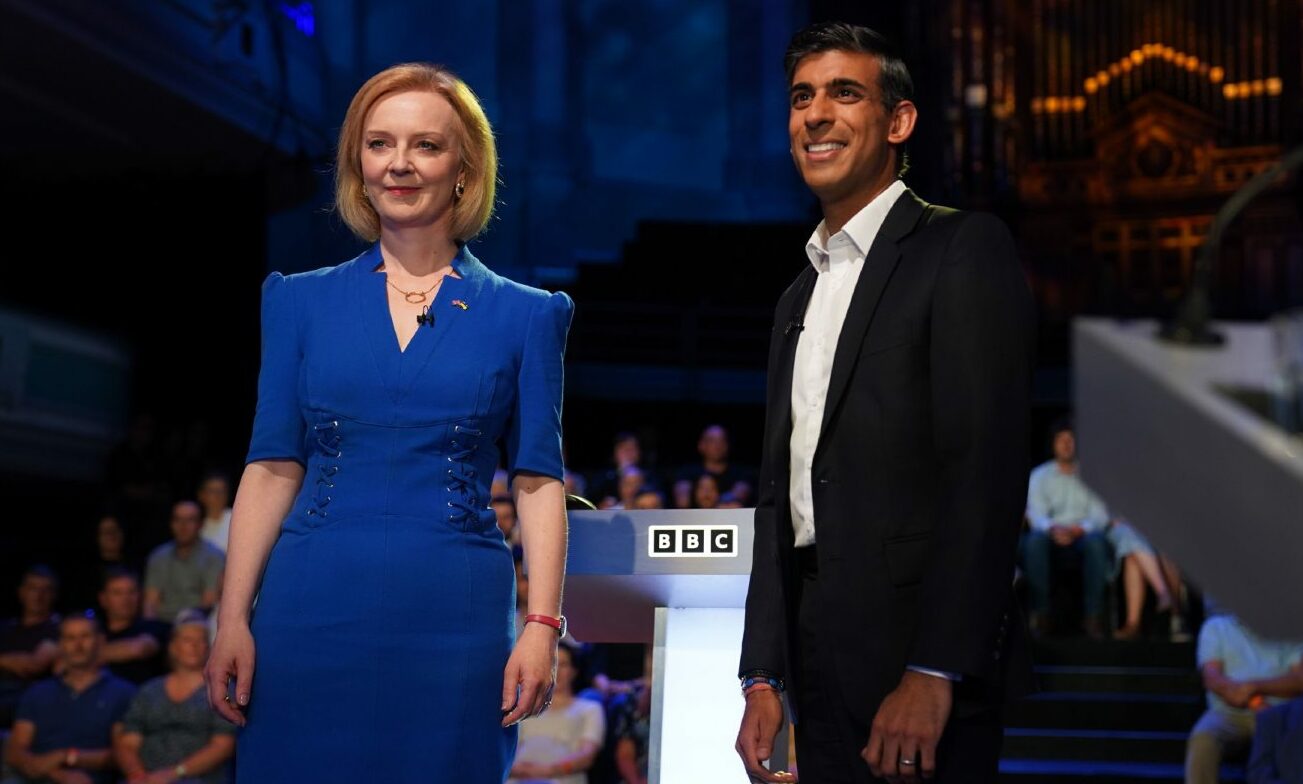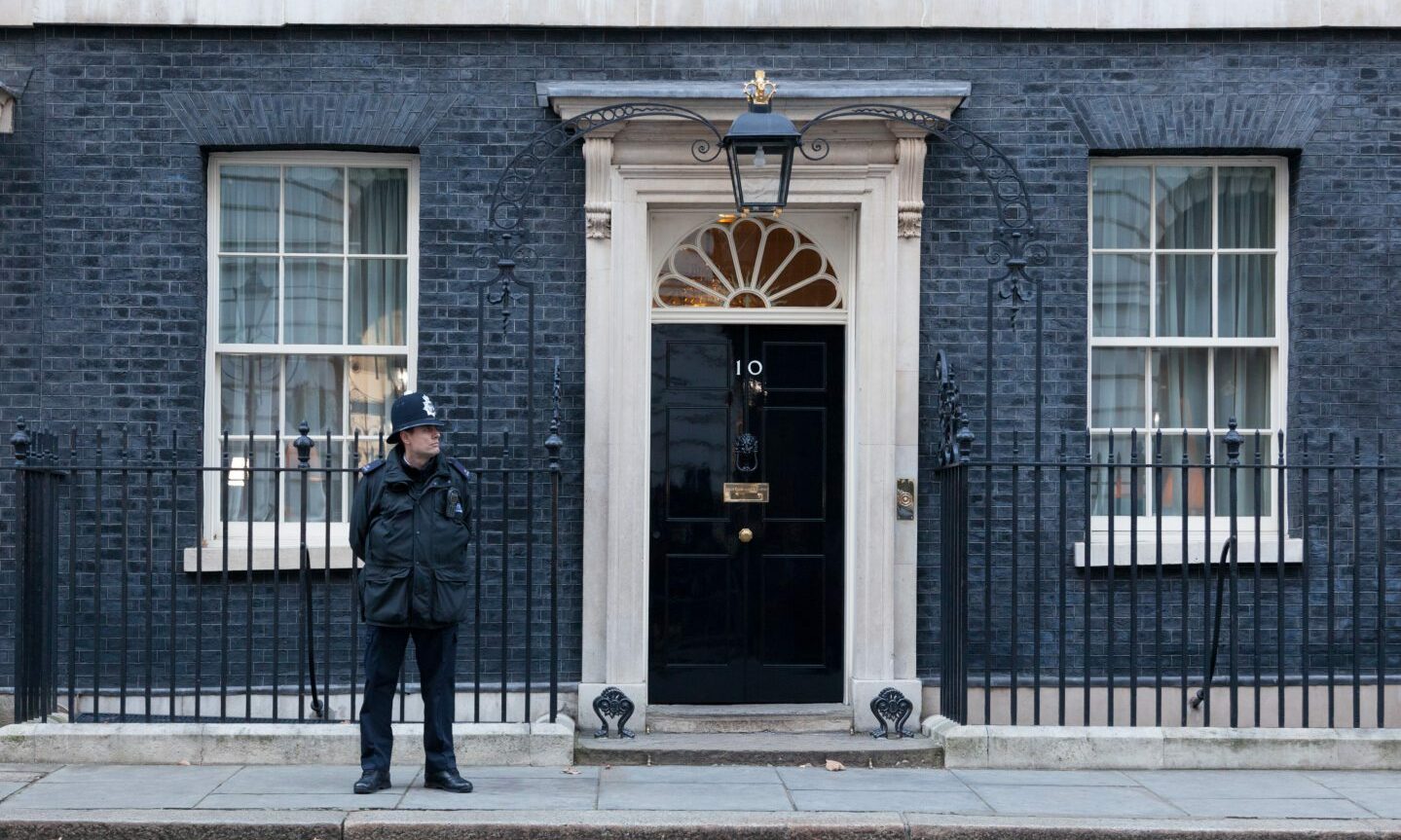Rishi Sunak is a shell of the leader he promised to be, because he knows his power is limited, writes Colin Farquhar.
A few months ago, I was watching the news, late at night. It was early November, I think, just after Rishi Sunak had become prime minister.
The discussion was about his upcoming meeting with President Macron of France: one of his first big diplomatic adventures.
One of the pundits declared that the two would get on. “They’re a similar height,” she said. I supposed this meant that their heads would almost be level when conversing – presumably a fantastic first step to ensuring healthy relations with France for years to come. The small talk is half the battle.
If only Sunak could relate to the rest of us so easily. I think it’s probably the exceptional wealth that gets in the way, however, rather than the stature, which is, of course, nothing to be embarrassed about. Some of us are small, too. Most of us aren’t billionaires.

A premiership that is mostly about perspective has ensued since those early days. Think about Father Ted explaining cows to Dougal on their caravan holiday – is Rishi Sunak really small, or is he just far away? Posted missing through a winter NHS crisis, like someone is slowly dragging his chair backwards along a very long corridor, disappearing into the gloom.
A prime minister who is receding. His New Year message and his recent appearance on Laura Kuenssberg portray a man who just isn’t quite there, and I mean physically. There’s no presence. Like a hologram you could pass your hand through, and grasp the light-emitting device somewhere where the heart should be.
At least he was able to send someone running back up the tunnel to register him with an NHS doctor.
Sunak can’t seem to respond straightforwardly
It was a bizarre interview, the Kuennsberg one. It was very pointedly explained to Sunak that the public might be interested in whether he – a very, very wealthy individual – used private healthcare or not. He ducked it. Laura even gave him an answer, in the form of a quote from Margaret Thatcher. He still ducked it.
Then, by PMQs, he was roaring that he was registered with an NHS GP. I wondered where this full-throated declaration had been on Sunday morning.
I imagined some poor administrative aide being sent to the closest clinic to sign him up sharpish. I felt pangs of sympathy, as it’s hard enough to remember your own NHS number, never mind the number of someone else who sounded a bit like he’d never heard of the service only a few days before.
It’s all compounded by the usual stuff, like the inability to answer a straightforward question. Or even lie in a straightforward way.
Rishi was asked if the recent squabbles in the royal family had damaged the institution. He answered that it was not for him to comment on. I cannot for the life of me work out why he just didn’t say: “No.”
Our PM is a shell
The problem, other than basically everything, is that – thanks to the lack of democratic process which has brought about the last few prime ministers – instead of having a prime minister with power, we have one with the remnants of power. Tendrils continuing to fray. Like the 500th printed copy, from a photocopier that was already running low on ink, we have a trace of a man; an outline.
The lack of engaging oratory skill doesn’t help. That he struggles to think on his feet doesn’t help. “That’s not for me to comment on.” It is, Rishi! You are the PM!
Think back to the Tory party leadership debates, before Liz Truss was elected. Sunak came across OK – an economically safe pair of hands. Now we have a shell; one that understands the limitations of his position.
Boris Johnson, for all his ills, mostly felt like a prime minister. His 2019 election victory imbued him with that, if nothing else.
Conservative Party clings grimly on
Exacerbated by 12 years of austerity, we have a truly broken Britain. The NHS is no longer working. The energy companies are running away with our money, while providing shoddy customer service. Evri can’t deliver any parcel to any house anywhere. Our economy has stalled, and threatens to freefall.
What’s left for them? Where can they go from here, and with what policies?
The Conservative Party clings to power only because there is a lack of mechanism to loosen its grip. Perhaps the Tories will finally decide for themselves that their diminished authority can only result in one sensible outcome: a snap general election, and letting someone else have a go at sifting through the mess.
What’s left for them? Where can they go from here, and with what policies?
Perhaps they can spend their last few months in power deciding which of our recent chancellors can pop the “there’s no money left” note in the dresser drawer. They seem to have no other idea what to do with their time, and the leadership is nearly invisible.
Colin Farquhar is former head of cinema operations for Belmont Filmhouse in Aberdeen



Conversation